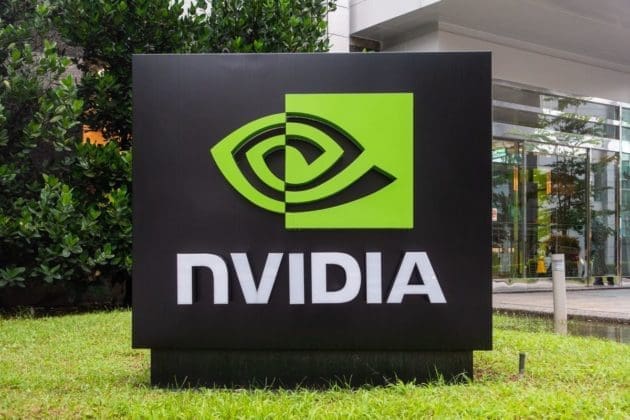Rising Tensions: China’s Ban on Nvidia’s AI Chips

China’s internet regulator is tightening the reins on American technology firms, taking significant steps by instructing domestic giants to halt purchases of Nvidia’s latest artificial intelligence (AI) chips. This action marks a pivotal moment in the growing technological conflict between Beijing and Washington, igniting discussions about what it means for both nations.
The Directive from Beijing
The Cyberspace Administration of China (CAC) has mandated firms like ByteDance and Alibaba to stop testing and cancel existing orders for Nvidia’s RTX Pro 6000D chip. This specific processor was developed to cater to the Chinese market in alignment with previous U.S. export restrictions. The CAC’s directive signals a robust commitment to limiting reliance on foreign technology, particularly from American firms.
Market Reactions and Nvidia’s Position
In the wake of this news, Nvidia’s shares experienced a nearly 1.5% decline in pre-market trading. This dip reflects investor apprehension regarding the potential impact on one of Nvidia’s largest markets. The company had invested significant time and resources in creating versions of its AI processors that adhered to U.S. export regulations, making this turn of events particularly disheartening for its leadership team.
Demand for AI Technology in China
Prior to the regulatory intervention, several Chinese companies had expressed intentions to order tens of thousands of the RTX Pro 6000D units. This suggests a robust demand for advanced AI computing power within the country, despite the escalating geopolitical tensions. This pivot from China’s previous acceptance of modified Nvidia products showcases a substantial shift in strategy and a growing confidence in domestic technological alternatives.
Beijing’s Strategic Patience
The latest directive expands upon previous regulations that primarily targeted Nvidia’s H20 chip, indicating a more comprehensive approach to curtailing American technological influence. Analysts suggest that the sweeping nature of this ban reflects China’s growing ambition for technological self-sufficiency. Beijing’s move demonstrates a long-term strategy to cultivate local innovations and diminish dependencies on U.S. tech products.
CEO Jensen Huang’s Response
Nvidia’s CEO, Jensen Huang, expressed disappointment at the regulatory developments, highlighting the growing challenges facing American tech companies in an increasingly fragmented global market. While Nvidia has not publicly detailed its revenue exposure to Chinese customers, it’s clear that China represents a significant opportunity for growth in the AI hardware sector.
The Broader Geopolitical Landscape
The timing of these restrictions coincides with efforts by Chinese enterprises to lessen reliance on American technology across various critical sectors. Beijing is reportedly accelerating investments into its domestic semiconductor capabilities, striving to create local solutions rather than relying on foreign alternatives.
Implications for Emerging Markets
For regions like Africa, this development underscores the complexities faced by countries aiming for technological advancement. Nations pursuing digital transformation must navigate between fragmented tech ecosystems, potentially affecting the accessibility and affordability of state-of-the-art AI infrastructure.
Questions on Technological Sovereignty
These restrictions extend beyond mere corporate interests, raising fundamental questions about technological sovereignty and market access. China’s regulatory strategy illustrates how government policies can reshape technology supply chains. This could set a precedent for other jurisdictions seeking increased control over their critical infrastructure.
Impact on Ghana’s Tech Sector
In Ghana, for example, the burgeoning tech landscape—especially in areas such as AI-driven financial services and agricultural innovation—may feel ripple effects from these global shifts. The country’s push for digital transformation heavily relies on access to cost-effective, advanced computing capabilities.
Global Semiconductor Market Dynamics
Recent U.S. export controls have already introduced a level of uncertainty in the global semiconductor markets. Companies are now confronted with complex licensing requirements for sales to Chinese entities. Conversely, China’s new directive eliminates this complexity by entirely cutting access to specific American products.
Innovation Amidst Fragmentation
Observers note that while the ban may drive innovation in both American and Chinese markets, it could also lead to fragmentation that hinders overall progress in AI development. The potential rise of distinct technological pathways for both nations raises questions about future collaboration and competition.
The Role of Multinational Corporations
For multinational corporations, these evolving dynamics underscore the difficulties of operating in environments where technology is increasingly used as a geopolitical tool. Companies must evaluate geopolitical risks when contemplating long-term investments in product development and market expansion.
A Shift Toward Independence
China’s directive mirrors broader efforts to reduce dependency on American technology across various sectors, encapsulating an overarching desire for technological independence. Similar initiatives have targeted diverse areas, from cloud computing services to telecommunications, reflecting a systematic approach to reshaping its technological landscape.
Market Adaptations and Future Prospects
Market analysts suggest that these restrictions might ultimately serve as a catalyst for innovation, creating larger addressable markets for domestic alternatives on both sides. Nevertheless, the transition is fraught with challenges, posing significant hurdles for companies and customers who rely on advanced AI capabilities.
In this shifting landscape, technology remains at the heart of geopolitical contests, impacting everything from economic growth to national security. The world watches as these developments unfold, inevitably shaping the future of global technology markets.



